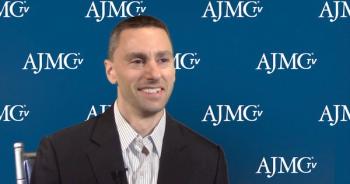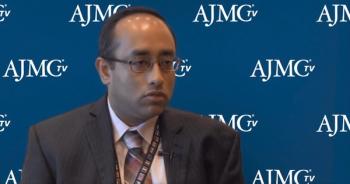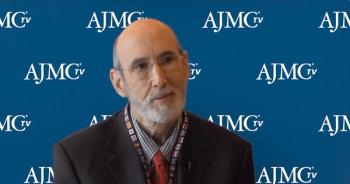
Here are the top 5 articles for the month of November.

Here are the top 5 articles for the month of November.

The industry does not do a very good job of letting providers know there are ways to cover risk or protect against it. Better educating physicians on this would help improve uptake of value-based care models, said Mike Fazio, senior vice president of client services, Archway Health.

While there is an increased interest in using real-world evidence (RWE) to design, test, and review rare disease treatments, payers may not be as receptive to using RWE when making reimbursement and formulary decisions, according to a new report from Syneos Health.

Every week, The American Journal of Managed Care® recaps the top managed care news of the week, and you can now listen to it on our podcast, Managed Care Cast.

This week, the top managed care news included research that shows stents may offer no more value than drugs for some heart patients; a ban on flavored tobacco products gains momentum; a survey finds most American families struggle with social factors that impact health.

Healthcare needs to learn to adapt faster to changes, said John Frownfelter, MD, FACP, chief medical officer of Jvion.

The FDA has approved a new treatment for adult patients with acute hepatic porphyria (AHP) a rare genetic disorder. Givlaari is an RNA interference therapeutic targeting aminolevulinic acid synthase 1. Simultaneously, Alnylam Pharmaceuticals announced a new framework for value-based agreements to help patients gain access to the treatment.

Blue Cross and Blue Shield of North Carolina (Blue Cross NC) and Wake Forest Baptist Health announced an agreement that could reduce Affordable Care Act (ACA) rates for small business customers with 1 to 50 eligible employees by up to 15%.

Two new rules from CMS will take steps to increase price transparency for the purpose of empowering patients and increasing competition in the market.

This week, the top managed care news included Medicaid tightening the reins on supplemental payments; employers needing more data to control benefit costs; experts saying prior authorization mostly burdens patients.

Depending on the type of alternative payment models, it could be more difficult or easier for practices to find overlaps and participate in multiple models, said Mike Fazio, senior vice president of client services, Archway Health.

Adult patients with beta thalassemia will now have an FDA-approved treatment available with luspatercept-aamt (Reblozyl). The therapy treats the rare inherited blood disorder, which requires patients to have regular red blood cell transfusions.

Prithviraj Bose, MD, of MD Anderson Cancer Center discusses treatment options for patients progressing with myelofibrosis.

Monotherapy was a big topic of conversation at the American College of Rheumatology’s annual meeting, held November 8-13 in Atlanta, Georgia, and 2 abstracts highlight the efficacy of sarilumab as a monotherapy in patients with rheumatoid arthritis.

Patients with rheumatoid arthritis receiving sarilumab have lower odds of unacceptable pain and are able to reduce their dose of oral glucocorticoid; they also have lower costs per responder than most other treatments, according to a trio of abstracts presented at the American College of Rheumatology/Association of Rheumatology Professionals 2019 Annual Meeting.

More and more data are being collected on people and in healthcare, patients have to believe that the data being collected is for their good and with the goal of improving their care, said John Frownfelter, MD, FACP, chief medical officer of Jvion.

Utilization management tools, such as step therapy and prior authorization, are not only time consuming for patients, but they are a burden on providers and their practices due to the time and effort spent on the process, explained Jessica Farrell, PharmD, and Madelaine Feldman, MD, FACR, during their session at 2019 ACR/ARP Annual Meeting, held November 8-13 in Atlanta, Georgia.

Two of state's largest health systems reach multiyear Blue Premier agreements with Blue Cross and Blue Shield of North Carolina (Blue Cross NC) aimed at better health outcomes and lower costs.

While biosimilars have brought down the cost of therapies, the savings are not quite as huge as providers may have been led to believe when biosimilars were initially under development, said Elaine Husni, MD, MPH, vice chair and director of the Arthritis and Musculoskeletal Center in the Orthopedic and Rheumatologic Institute at the Cleveland Clinic.

Nondrug therapies that might have been dismissed 30 years ago are now the sorts of treatments physicians are turning to instead of overused treatments like surgical procedures, opioids, and injections, said Daniel Clauw, MD, professor of anesthesiology, medicine (rheumatology), and psychiatry; director of translational research; and director of the Center for Chronic Pain and Fatigue Research.

Every week, The American Journal of Managed Care® recaps the top managed care news of the week, and you can now listen to it on our podcast, Managed Care Cast.

The evidence shows that chimeric antigen receptor (CAR) T-cell therapies are effective, but the price tags on these treatments are high and have raised concerns about how many patients will get treated. During a discussion at The American Journal of Managed Care®’s Patient-Centered Oncology Care® meeting, held Friday in Philadelphia, panelists outlined the efficacy of the 2 FDA-approved therapies, Medicare reimbursement for CAR T-cell therapies, and the pace of innovation in healthcare.

This week, the top managed care news included CMS started planning for life after the Oncology Care Model; a judge blocked a rule requiring immigrants to have health coverage; Election Day brought news for Medicaid work rules.

A majority of patients with acute graft-versus-host disease (GVHD), but not all, have significant responses to the addition of ruxolitinib, said David Snyder, MD, associate chair of the Department of Hematology & Hematopoietic Cell Transplantation at City of Hope.

Approximately 4% of the total world population is affected by a rare disease at any given time, according to new research on 3585 rare diseases.

259 Prospect Plains Rd, Bldg H
Cranbury, NJ 08512
© 2025 MJH Life Sciences®
All rights reserved.
